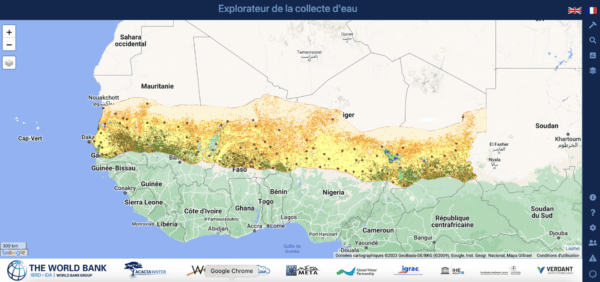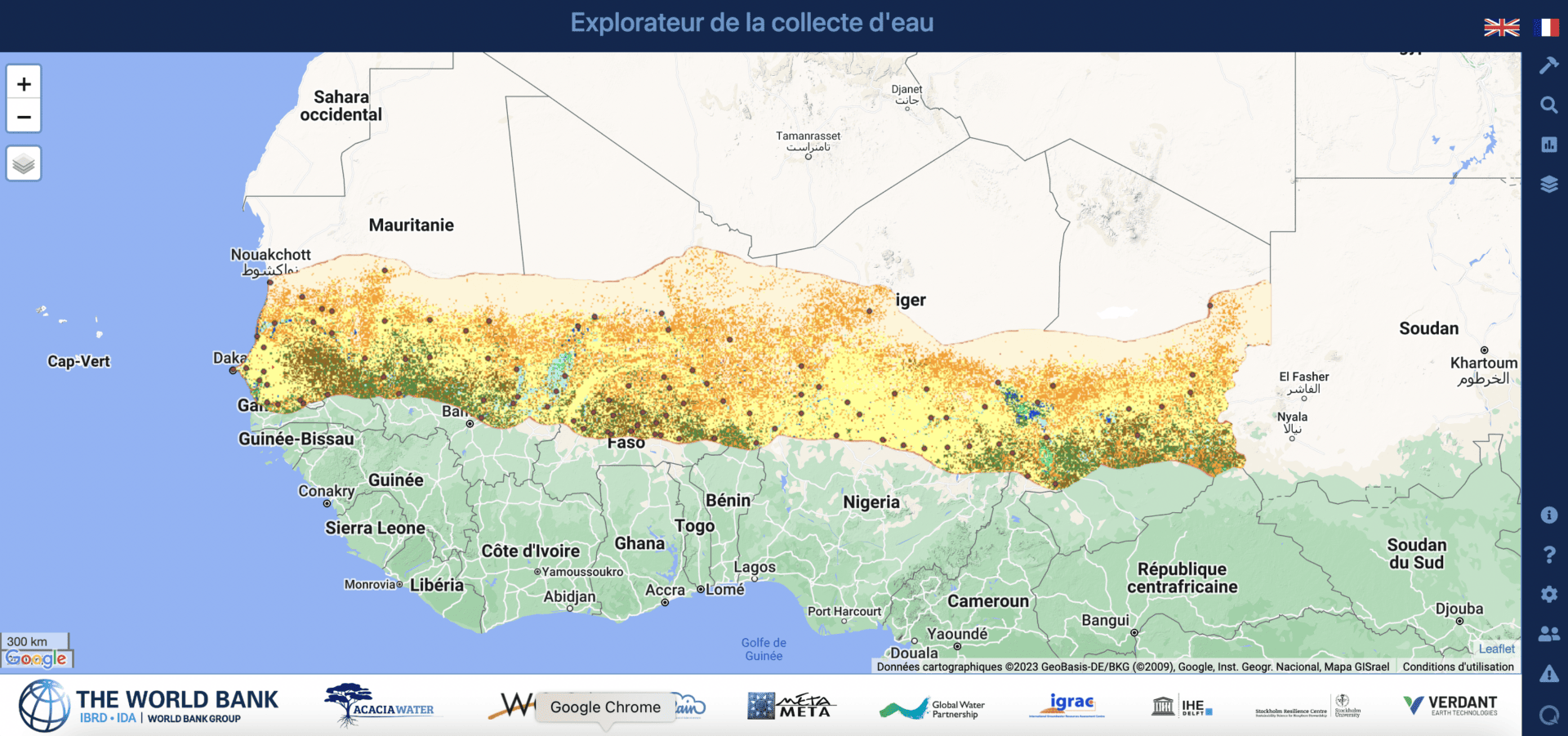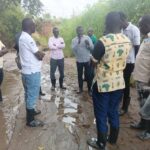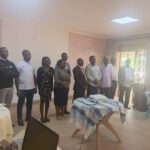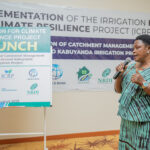Article drafted by Niels Lenderink, Senior Programme Manager
The Water Harvesting Explorer (WHE) has been developed with funding from the World Bank by a consortium of organisations with expertise in small scale water harvesting: Acacia Water, MetaMeta, CDE at University of Bern (WOCAT), IGRAC, IHE Delft Institute for Water Education, Stockholm Resilience Centre, Verdant Earth, Global Water Partnership West-Africa, and AidEnvironment.
The WHE suggests appropriate small scale water interventions for any location in the Western Sahel, based on the land use, rainfall and slope at that location.
Two online trainings were given already this year: an introductory training and a training on the World Overview of Conservation Approaches and Technologies (WOCAT) and its links to the WHE.
In June, an advanced training was given by Francesco Sambalino (MetaMeta Research) and Niels Lenderink (AidEnvironment) on the WHE for those involved in the Agro-Climatic Resilience in Semi-Arid Landscapes programme in Nigeria (ACReSAL).
Within the framework of the ACReSAL programme (funded by the World Bank), the WHE will be used to assess appropriate small scale water interventions in Northern Nigeria.
During this advanced training, attendees were shown how to use the WHE as a stand alone tool, while also learning about different ways to access results from WHE: with QGIS and using Python (via API). Moreover, the participants were invited to contribute to the WOCAT Database, by describing small scale water interventions that were not yet included in the WOCAT database.
